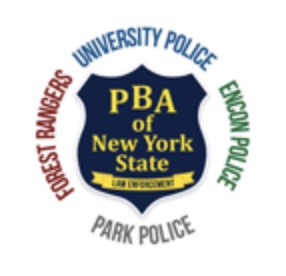Police union says AG report ‘one-sided’ on high-speed chases; PBA says officers wrongly blamed for dangerous pursuits
Press Release, Police Benevolent Association of New York State

“The Police Benevolent Association of New York State appreciates the time and resources spent by the Office of the Attorney General to gather and analyze data on law officer pursuits of suspects. Our brother and sister officers have variously initiated pursuits by car, motorcycle, boat, ATV, snowmobile and other vehicles. The PBA of New York State agrees that police pursuits are dangerous: for the suspect, for the officers involved in the pursuit and for the general public.
However, we strongly disagree with the one-sided research in this report, which implies that officer decision-making is the sole cause of unsafe pursuits. Above all—and missing from the OAG’s announcement—is that it is never legally allowable for a civilian to decide they do not want to stop or yield to a police officer’s commands toward their vehicle. Likewise, it is never legally allowable for a civilian to decide to flee an initiated traffic stop.
The officers we represent make split-second, life or death decisions every single day. They do so by balancing many factors, including the seriousness of an offense, their own personal safety and the well-being of the general public. Rather than once again scrutinizing the decisions made by police officers, we urge the OAG and New York’s lawmakers to instead consider passing laws which increase criminal liability and penalties for those who flee from lawful traffic stops and investigations.”
In its 2007 ruling in the case of Scott v. Harris, the United States Supreme Court ruled 8-1 in favor of a Georgia sheriff’s deputy who took action to terminate a police pursuit. The ensuing crash left the suspect in the case permanently paralyzed. Even so, the Supreme Court found that public policy which bans, limits or affects the in-chase mechanics of a high-speed police pursuit will only encourage suspects to flee more often. The court referred to such policy as an “invitation to impunity-earned-by-recklessness.”

























































